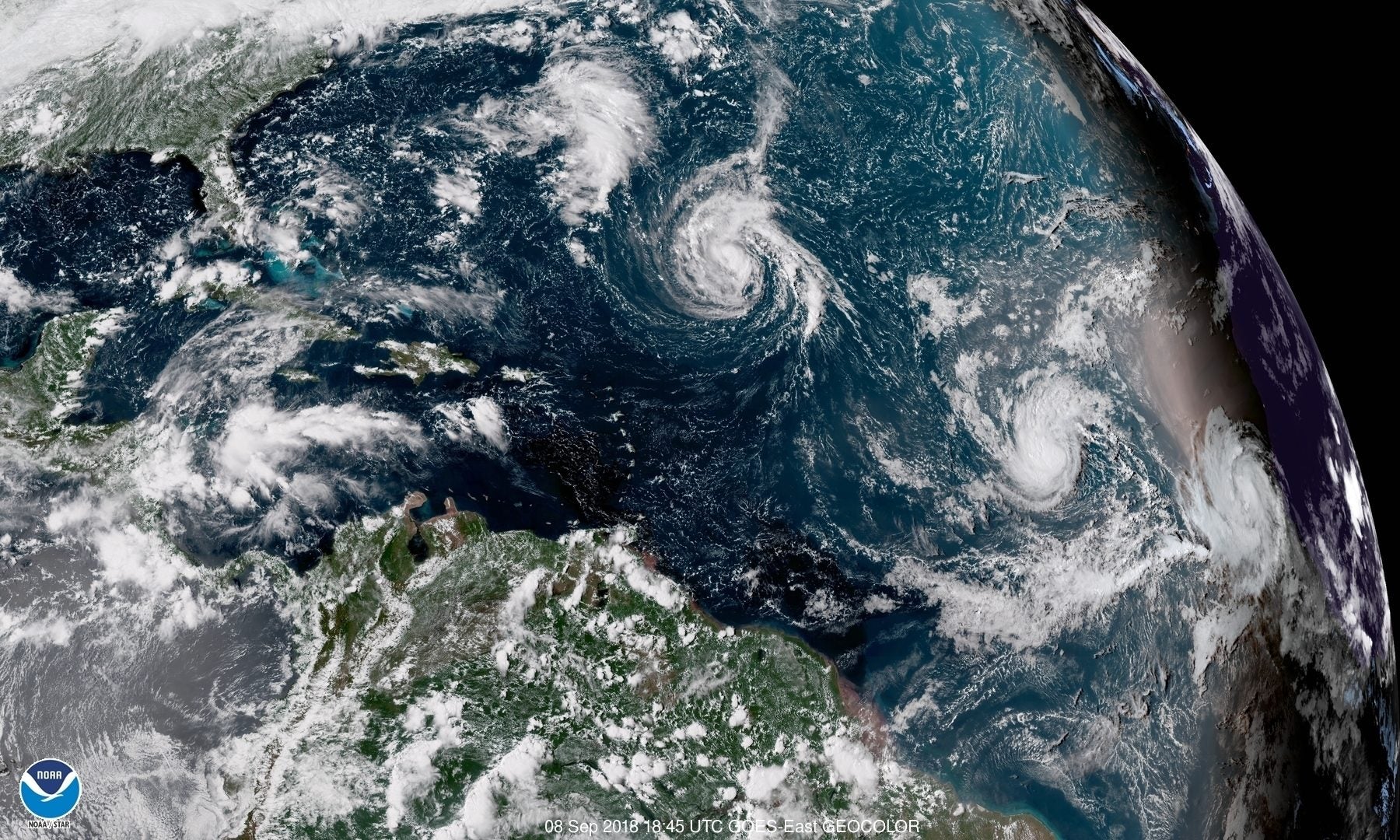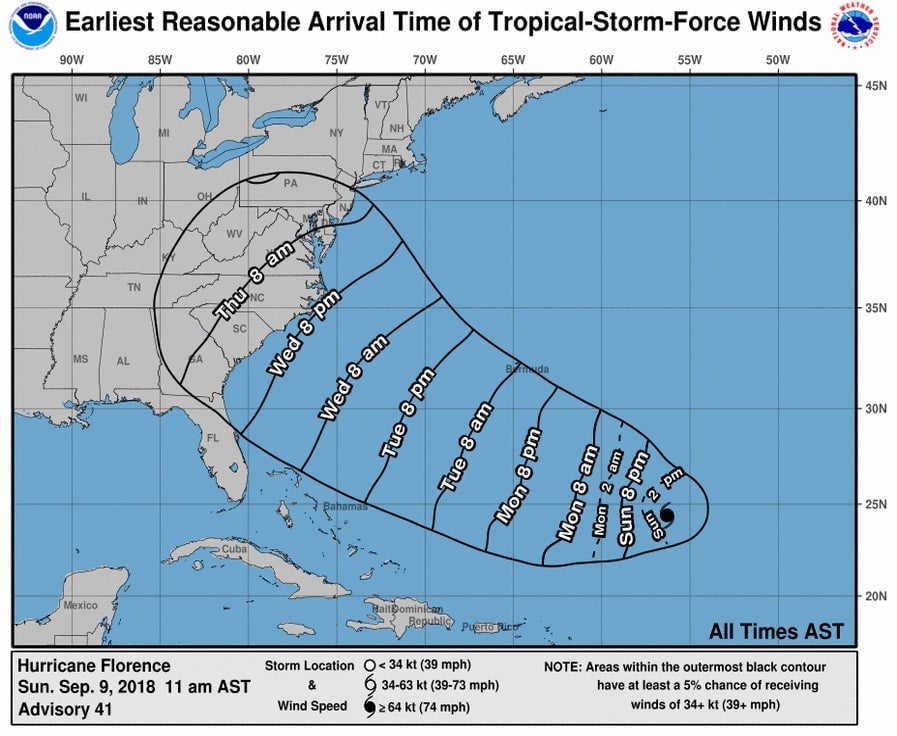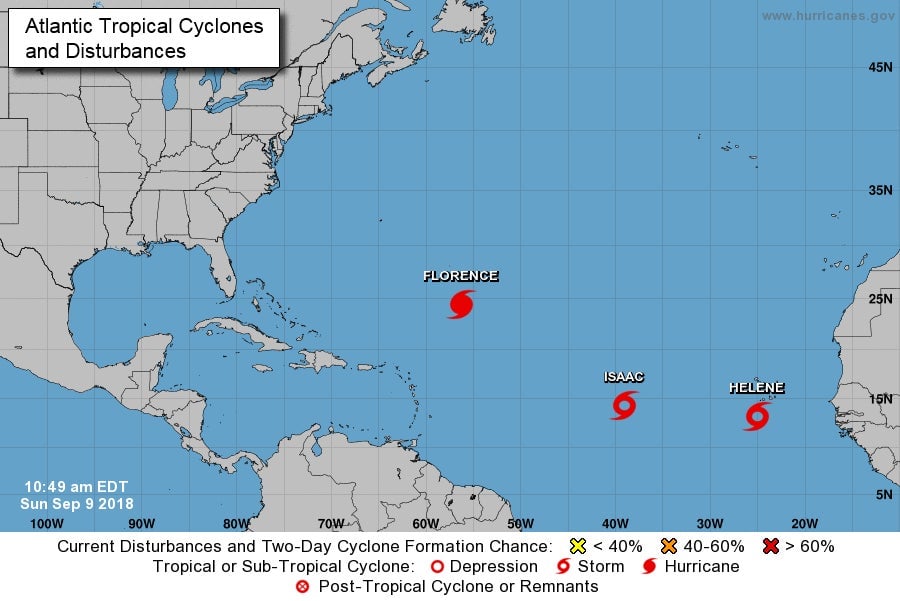Hurricane Florence is heading toward the US and increasing in force
The east coast of the US is on alert for the expected arrival of a strengthening Hurricane Florence this week, as government forecasters predict it will gain in force and become a major hurricane by Monday, Sept. 10. Already North Carolina, South Carolina, and Virginia have declared states of emergency as they brace for its impact during the second half of the week.


The east coast of the US is on alert for the expected arrival of a strengthening Hurricane Florence this week, as government forecasters predict it will gain in force and become a major hurricane by Monday, Sept. 10. Already North Carolina, South Carolina, and Virginia have declared states of emergency as they brace for its impact during the second half of the week.
The US national hurricane center, since 11 am EDT today, forecasts Florence will approach the southeastern US coast on Thursday, Sept. 13. It is characterized as “an extremely dangerous major hurricane.” Swells from the hurricane are already reaching Bermuda and the US coast.

The hurricane center describes the risks:
There is an increasing risk of two life-threatening impacts from Florence: storm surge at the coast and freshwater flooding from a prolonged heavy rainfall event inland. While it is too soon to determine the exact timing, location, and magnitude of these impacts, interests at the coast and inland from South Carolina into the mid-Atlantic region should closely monitor the progress of Florence, ensure they have their hurricane plan in place, and follow any advice given by local officials.
A hotter planet is likely making storms like Florence worse, according to the US National Ocean and Atmospheric Administration (NOAA). While predicting the effects of a single storm is tricky, global warming is like steroids for hurricanes. It raises sea levels, and contributes to higher rainfall rates and storm intensity. “Greenhouse warming will cause hurricanes in the coming century to be more intense globally and have higher rainfall rates than present-day hurricanes,” NOAA wrote in a review of the latest science.
Some of the effects are already here. Not only was 2017 the third-hottest year on record, it was also the costliest year for weather disasters in US history with 16 major events causing $306 billion in damages to the US, reports NOAA.
We’re in the middle of hurricane season in the Atlantic Ocean and US forecasters have issued warnings for several other storms, including Helene and Isaac.

The potential damage from Florence is attracting intense concern at the moment: